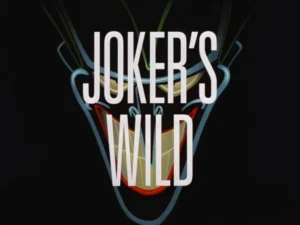 In the vast tapestry of comic book lore, few characters captivate and disturb as deeply as the Joker. His chaotic and unpredictable nature has woven him into the fabric of iconic storylines, often involving themes of madness, crime, and the dark underbelly of society. One recurring motif in Joker’s narratives is his affinity for casinos, which serve not only as settings for his nefarious deeds but also as symbolic arenas for his twisted games of chance. This article delves into the multifaceted role of casinos in Joker story arcs, exploring how they reflect his psyche, his relationship with Batman, and the broader themes of chaos and control.
In the vast tapestry of comic book lore, few characters captivate and disturb as deeply as the Joker. His chaotic and unpredictable nature has woven him into the fabric of iconic storylines, often involving themes of madness, crime, and the dark underbelly of society. One recurring motif in Joker’s narratives is his affinity for casinos, which serve not only as settings for his nefarious deeds but also as symbolic arenas for his twisted games of chance. This article delves into the multifaceted role of casinos in Joker story arcs, exploring how they reflect his psyche, his relationship with Batman, and the broader themes of chaos and control.
The Joker’s Playground
Casinos, with their flashing lights, clinking coins, and aura of risk, provide the perfect backdrop for the Joker’s brand of chaos. They are vibrant microcosms of society’s obsession with luck and fortune, and the Joker thrives in such environments where unpredictability reigns supreme. From high-stakes poker tables to glitzy slot machines, casinos offer him a stage upon which to showcase his madness and disrupt the status quo.
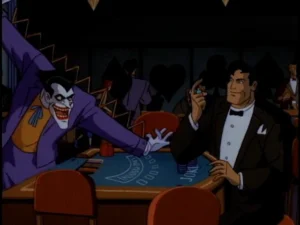 Symbolism of Chance
Symbolism of Chance
At its core, the Joker’s fascination with casinos speaks to his embrace of chaos and the arbitrary nature of existence. In the world of gambling, fortunes can change in an instant, and the Joker revels in this uncertainty. Amidst the chaos, even as physical casinos crumble under the weight of his madness, the Joker’s influence extends beyond brick and mortar. Those who seek the thrill of chance now find themselves drawn to play at the new online casinos in Canada, where the allure of risk is as potent as ever. His actions within casinos often mirror this philosophy, as he gleefully upends order and imposes his own twisted sense of justice. Whether he’s rigging games, orchestrating heists, or simply causing mayhem, the Joker embodies the idea that life is a gamble, and he’s more than willing to roll the dice.
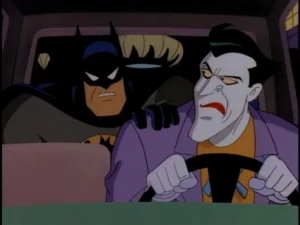 The Batman Connection
The Batman Connection
No discussion of the Joker would be complete without examining his complex relationship with the Dark Knight. In many Joker story arcs, casinos serve as battlegrounds where the two adversaries clash, both physically and ideologically. For Batman, casinos represent symbols of corruption and excess, while for the Joker, they are playgrounds of liberation and chaos. Their encounters within these establishments are not just confrontations but also symbolic duels between order and anarchy, control, and chaos.
Psychological Warfare
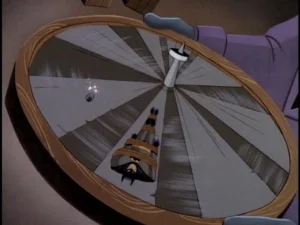 The Joker’s presence in casinos often instills fear and uncertainty among patrons and employees alike. His actions are calculated to provoke not only Batman but also society at large, challenging their notions of security and control. By infiltrating these bastions of wealth and privilege, the Joker exposes the fragility of societal norms and the illusion of safety. In doing so, he forces both Batman and the reader to confront uncomfortable truths about human nature and the nature of evil.
The Joker’s presence in casinos often instills fear and uncertainty among patrons and employees alike. His actions are calculated to provoke not only Batman but also society at large, challenging their notions of security and control. By infiltrating these bastions of wealth and privilege, the Joker exposes the fragility of societal norms and the illusion of safety. In doing so, he forces both Batman and the reader to confront uncomfortable truths about human nature and the nature of evil.
Themes of Addiction and Obsession
Beyond the Joker’s own predilections, casinos in his story arcs also serve as allegories for addiction and obsession. Many of his adversaries, like Two-Face or the Penguin, are drawn to the thrill of gambling, mirroring the Joker’s own compulsions. The Joker preys on these vulnerabilities, exploiting them for his own gain and amplifying the destructive tendencies of those around him. In this way, casinos become more than just settings—they become reflections of the characters’ inner demons.
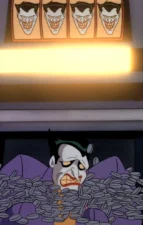 Conclusion
Conclusion
In the ever-expanding mythology of the Joker, casinos play a pivotal role, serving as both settings for his villainous exploits and symbols of his anarchic philosophy. Through his actions within these establishments, the Joker challenges not only Batman but also the reader to confront uncomfortable truths about the nature of chaos, control, and the human psyche. As long as casinos exist as symbols of risk and reward, the Joker will continue to haunt their halls, a reminder that in his world, chaos always reigns supreme.
